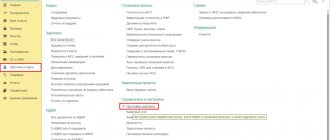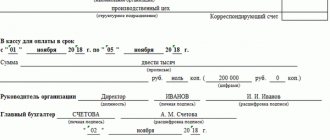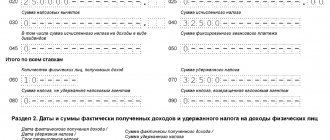In my practice, I quite often came across a situation where employees were not paid a bonus for the reason that they did not fully work the period for which the bonus was paid (they were sick, were on a business trip, etc.). Especially often, a bonus is not paid to dismissed employees.
But non-payment of a bonus, if it is a component of wages, is nothing more than incomplete payment of wages on time. Responsibility for this violation is established by Art. 5.27 Code of Administrative Offenses up to 50 thousand rubles, and Art. 145.1 of the Criminal Code of the Russian Federation provides for a fine of up to 120 thousand rubles. or imprisonment for up to one year.
Let's take a closer look at what a premium is?
Can an employee be deprived of a bonus or not?
A bonus is an incentive part of the salary, but its payment is not mandatory unless otherwise specified in the employment contract with the employee, or in a local act, collective agreement, or agreement.
Most often, organizations adopt Regulations on Bonuses, which stipulate the grounds for paying bonuses (for example, fulfillment of the plan, achievement of certain indicators, absence of product defects, absence of customer complaints, etc.). The Regulations may also provide for the possibility of deprivation of bonuses. As a rule, this is a measure of punishment for employees for disciplinary offenses committed by them, theft or damage to the employer’s property, shortages).
Deprivation of a bonus is legal only if the grounds for this are provided for in any act adopted by the organization or in the employment contract with the employee. Otherwise, if an employee has earned a bonus, he cannot be deprived of the bonus.
The procedure for calculating different bonuses for the same salaries
Incentive payments (additional payments and bonuses of an incentive nature, bonuses and other incentive payments) are part of the salary (Part 1 of Article 129 of the Labor Code of the Russian Federation). The employee’s salary is established by the employment contract in accordance with the current employer’s remuneration systems (Part 1, Article 135 of the Labor Code of the Russian Federation).
The employer encourages employees who conscientiously perform their job duties: expresses gratitude, gives a bonus, awards a valuable gift, a certificate of honor, nominates them for the title of the best in the profession (Part 1 of Article 191 of the Labor Code of the Russian Federation).
Remuneration systems are established by collective agreements, agreements, local regulations in accordance with labor legislation and other regulatory legal acts containing labor law standards (Part 2 of Article 135 of the Labor Code of the Russian Federation).
Remuneration systems include systems of additional payments and incentive bonuses, as well as bonus systems.
The payment should be considered an incentive bonus if it:
- depends on the personal labor contribution of each employee,
- established by local regulations,
- accrued depending on the results of work,
- conditioned by the conscientious performance by employees of their duties.
As follows from Part 2 of Art. 135 of the Labor Code of the Russian Federation, bonus systems are not directly regulated by labor legislation and other regulatory legal acts containing labor law norms. They are established by collective agreements, agreements and local regulations adopted in accordance with labor legislation and other regulations.
In a local regulation that establishes the procedure for assigning and paying bonuses, it is recommended to indicate:
- bonus payment period
- bonus indicators,
- bonus conditions,
- sizes and bonus scale,
- circle of rewarded employees,
- sources of bonuses, etc.
When introducing a bonus system, it is important not to violate the requirements of Art. 3, Art. 22 and Art. 132 of the Labor Code of the Russian Federation on non-discrimination in the field of wages, on equal pay for equal work and on the correspondence of wages to the quantity and quality of labor expended.
Determining the size of the bonus depending on the actual contribution of each employee to the results of collective work and depending on individual productivity and quality of work does not contradict labor legislation .
The employer has the right to stipulate in a local act that the amount that makes the size of the bonus dependent on the personal labor contribution of each employee is determined by the head of the department for each employee separately based on the results of the period for which the bonus is assigned.
Thus, premiums can indeed be different. To do this, the Regulations on Remuneration and Bonuses need to include criteria and indicators on the basis of which different bonus amounts for the same employees vary It should be borne in mind that “the salary of each employee depends on his qualifications, the complexity of the work performed, the quantity and quality of labor expended, and is not limited to the maximum amount” (Article 132 of the Labor Code of the Russian Federation). Exceptions are made in cases provided for by the Labor Code of the Russian Federation.
Any kind of discrimination in establishing or changing wage conditions is prohibited.
For example , when checking, it will be necessary to document that worker N worked better than worker F, so his bonus is higher by X rubles. ( no wage discrimination). The indicator is also the presence/absence of violations of labor discipline. All indicators must be stated in the Regulations and a memo justifying the amount of the bonus for each employee must be attached. If the difference in bonuses is not explained, this may be regarded as a violation of labor laws .
Want to know more?
Contact the professionals
Read more
Order for deprivation of bonus: general information
The deprivation of the bonus is carried out on the basis of an order to this effect. This document is drawn up in any form and is an administrative act of the head of the organization, on the basis of which one or more employees are subject to depreciation. Each employee affected by the order must be familiar with its contents. Familiarization with the order on deprivation of the bonus is made against signature.
The form of the order to deprive an employee of a bonus can be fixed in a local act. In this case, the document must be drawn up in the approved form. If this is not accepted, the form can be arbitrary.
Without an order, it is impossible to deprive an employee of a bonus if there are grounds for a bonus. This is confirmed by judicial practice, in particular by the Appeal Ruling of the Supreme Court of the Republic of Tatarstan dated September 27, 2012 No. 33-9816/2012. However, if the organization does not provide grounds for bonuses, then non-payment of bonuses will not constitute deprivation of the bonus. In this case, the order is not drawn up.
How to draw up an order to deprive an employee of a bonus
The order is drawn up on a regular sheet of paper, or on the organization’s letterhead (if available). The law does not impose requirements for the document, but it is filled out according to the general principles of personnel document flow.
The order includes various information, such as:
- The name of the organization where the document is published.
- Title of the document (order for deprivation of bonuses).
- Date of the order.
- Serial number.
- The motivation part, which indicates for what reason one or more employees are deprived of bonuses.
- The operative part, which reflects the will of the employer to deprive the bonus.
- Manager's signature (with transcript).
- Signature of one or more employees confirming familiarization with the document.
- Date of review of the order.
Why might an employee not be paid a bonus?
Since the collective agreement or bonus regulations clearly indicate the conditions for receiving the payment, if the established standards are not met, the employee is awarded only a bare salary.
In addition, the employer has the right to prescribe additional provisions allowing him to reduce the amount of the bonus or completely deprive it. For example, an employer may refuse to pay if an employee commits a disciplinary offense. Another option that makes it possible to leave an employee without financial incentives (relevant if a bonus is accrued for time worked) is long-term sick leave or time off.
It is important to know that deprivation of a bonus due to an upcoming dismissal is illegal. If such a nuisance does occur, a person should go to court to recover the premium itself, compensation for the delay in its accrual, as well as compensation for moral damage.
Order for deprivation of bonus - sample (for failure to fulfill duties)
As an example, we provide a sample order for the deprivation of bonuses for failure by an employee to fulfill official duties.
Limited Liability Company "Zakoved"
(Zakoved LLC)
ORDER
On deprivation of bonuses for failure to fulfill duties
dd.mm.yyyy No. 18-P
The procedure for bonuses at Zakoved LLC is established by a local act - Regulations on bonuses dated dd.mm.yyyy No. 1-PO (hereinafter referred to as the Regulations). According to clause 12 of the Regulations, each employee receives a bonus at the end of the month in the amount of his salary.
Clause 13 of the Regulations provides for the procedure for depriving employees of bonuses. By virtue of this clause, an employee who has not fulfilled the plan provided for in the job description is deprived of the monthly bonus provided for in clause 12 of the Regulations.
The content manager's job description dated dd.mm.yyyy No. 11 DI stipulates that an employee must publish at least 20 articles on the site every month. Ivanov A.A. holds the position of content manager, subject to the above job description. In February 2021, Ivanov A.A. did not fulfill the duties assigned to him.
On the basis of the above,
Have a question? We'll answer by phone! The call is free!
Moscow: +7 (499) 938-49-02
St. Petersburg: +7 (812) 467-39-58
Free call within Russia, ext. 453
I ORDER:
- Deprive Ivanov A.A. monthly bonus for February 2021 for failure to fulfill job duties provided for by the job description of the content manager dated December 12, 2015 No. 11 DI.
- Introduce Ivanov A.A. with this order.
- I reserve control over the execution of this order.
General Director: Petrov V.V. /Petrov/
The order has been reviewed by: content manager Ivanov A.A. /Ivanov/ dd.mm.yyyy
What is a bonus and who is entitled to it?
A bonus is a way to reward employees who perform their job duties impeccably. It has nothing to do with wages under certain conditions and does not have legally designated minimum or maximum amounts.
The bonus can be either monthly (quarterly, annual) or one-time. In the first case, it is accrued based on the results of meeting established standards and is part of the material motivation of employees. One-time payments can be timed to coincide with important events in the lives of employees (anniversaries, weddings, birth of a child).
If we are talking about a regular bonus, then the employer is obliged to notify the staff in advance about how exactly the bonus part of the salary is calculated and what its size depends on. In addition, the procedure for calculating regular cash incentives must one way or another be reflected in the employment contract.
Order on deprivation of bonuses for absenteeism, tardiness - sample
It is important to note that deprivation of bonuses is not a disciplinary sanction, since the list of such penalties is closed, and such a disciplinary measure is not provided for by law. In this regard, disciplinary action may serve as a basis for deprivation of bonuses, but will not constitute a penalty as such. Prosecution for a disciplinary offense and deprivation of a bonus are formalized by different orders.
As another example, we will give a sample order on deprivation of bonuses when disciplinary offenses are committed.
Limited Liability Company "Zakoved"
(Zakoved LLC)
ORDER
On deprivation of a bonus for committing a disciplinary offense
dd.mm.yyyy No. 18-P
The procedure for bonuses at Zakoved LLC is established by a local act - Regulations on bonuses dated dd.mm.yyyy No. 12-PO (hereinafter referred to as the Regulations). According to clause 5 of the Regulations, employees of Zakoved LLC receive a bonus at the end of each month in the amount of two salaries.
By virtue of clause 12, an employee against whom a disciplinary sanction was applied in the month for which bonuses are awarded is deprived of the bonus provided for in clause 5 of the Regulations.
By order dated dd.mm.yyyy Ivanov A.A. brought to disciplinary liability in the form of a reprimand. Thus, based on clause 12 of the Regulations,
I order:
- Deprive Ivanov A.A. bonuses for February 20__.
- Introduce Ivanov A.A. with the text of this order.
- Control over the execution of this order shall be entrusted to the chief accountant O.O. Petrova.
General Director Petrov V.V. /Petrov/
I have read the order:
Content manager Ivanov A.A. /Ivanov/ dd.mm.yyyy
Chief accountant Petrov O.O. /Petrov/ dd.mm.yyyy
***
Thus, the order on depreciation is drawn up in any form. For convenience, you can use the samples given in the article or via the link at the beginning of the publication.
There are more reasons for not awarding bonuses to managers
(Commentary to the Resolution of the Council of Ministers of the Republic of Belarus dated December 3, 2020 No. 698*)
* Resolution of the Council of Ministers of the Republic of Belarus dated December 3, 2020 No. 698 “On amendments to the resolutions of the Council of Ministers of the Republic of Belarus”, hereinafter referred to as Resolution No. 698.
The commented resolution introduced amendments to the resolution of the Council of Ministers of the Republic of Belarus dated 07/08/2013 No. 597 “On improving the conditions of remuneration of heads of organizations depending on the results of financial and economic activities”, hereinafter referred to as resolution No. 597.
Major changes in executive remuneration conditions
Their essence boils down to the following:
— the list of grounds for prohibiting the accrual and payment of premiums, bonuses and remuneration, hereinafter referred to as bonuses, to heads of organizations has been expanded (subclause 1.4 of clause 1 of Resolution No. 698). Now bonuses are not awarded even if there is arrears in the payment of state benefits to families raising children.
— when determining the ratio of the average salary of a manager and the average salary for the organization as a whole, the manager’s salary does not take into account one-time remunerations for fulfilling an order for the supply (procurement, delivery) of scrap and waste of ferrous and non-ferrous metals for state (republican) needs and the order for the supply (procurement, delivery) of paper and cardboard waste and glass waste for republican state needs. Previously, such one-time remunerations were not taken into account in calculating the ratio of no more than two salaries inclusive.
— Clause 14 is excluded from Regulation No. 597**, namely “Payment of wages to managers is made no earlier than their payment to employees of organizations and in accordance with the percentage (shares) of wages paid to employees.”
State benefits for families raising children must be paid on time
Now the heads of organizations are not accrued or paid all types of bonuses, bonuses and remunerations provided for by the terms of contracts for the month in which there was arrears in the payment of state benefits to families raising children.
Also, incentive payments are not accrued or paid to the manager if:
— an increase in losses from the sale of products, goods (works, services) for the reporting period compared to the previous period for the organization as a whole, unless otherwise established by law;
— arrears in payment of wages;
— arrears in payment for natural gas, electric and thermal energy consumed since the beginning of the reporting year, resulting from failure to ensure their payment within the time limits established by contracts or legislative acts (subclause 2.5, clause 2 of Resolution No. 597);
— arrears of payments to the republican and (or) local budgets, the budget of the state off-budget fund for social protection of the population of the Republic of Belarus (clause 1 of Decree of the President of the Republic of Belarus dated October 26, 2020 No. 381).
Important!
The list of state benefits for families raising children is determined by Art. 3 of the Law of the Republic of Belarus dated December 29, 2012 No. 7-Z “On state benefits for families raising children”, hereinafter referred to as Law No. 7-Z.
In general, child benefits assigned at the recipient’s place of work are paid on the days established for the payment of wages against accrued mandatory insurance contributions to the Social Security Fund. In this case, monthly benefits are paid for the current month (clause 9, article 21 of Law No. 7-Z).
The procedure for the appointment and payment of state benefits is established by the Council of Ministers of the Republic of Belarus (clause 10 of Article 21 of Law No. 7-Z), namely the Regulations on the procedure for the appointment and payment of state benefits to families raising children, approved by Resolution of the Council of Ministers dated June 28, 2013 No. 569.
Payment of benefits is linked to the timing of salary payments. Debt in payment of wages is its failure to pay within the terms and amounts established by law, a collective agreement, an agreement concluded and adopted in accordance with the law, or an employment contract (letter of the Ministry of Labor and Social Protection of the Republic of Belarus dated November 20, 2015 No. 1-2-12 /2735 “On the application of the norms of the Resolution of the Council of Ministers of the Republic of Belarus of October 13, 2015 No. 848”). We believe that debt for non-payment of state benefits to families raising children will be determined similarly.
Example 1.
Arrears in payment of childcare benefits for a child under 3 years old
The organization has established a deadline for payment of wages - the 10th day of the month following the month of accrual. Child care benefits for children under 3 years of age were accrued for November in the amount of 1,283.52 rubles. However, they were not paid on time. Benefits were paid to the organization on November 11, 2021.
Delay in payment of benefits by one day —
This is already a debt.
The head of the organization is not accrued or paid all types of bonuses for the month in which arrears in payment of benefits were incurred.
It should be taken into account that the bonus is calculated proportionally
months in which there was no arrears in payment of benefits (part three, subclause 2.5, clause 2 of Resolution No. 597). That is, for the month in which such debt was incurred, the bonus is not accrued, but for the other two - it is accrued
Example 2.
Accrual of a quarterly bonus to a manager.
In accordance with the terms of the contract, the manager is awarded a quarterly bonus for the 4th quarter of 2021 in the amount of 900 rubles. In one of the months of the 4th quarter (December), there was arrears in the payment of state benefits to families raising children. A bonus was awarded to the manager in the amount of 600 rubles. (900 rub. / 3 x 2).
How to calculate the wage ratio ratio?
There is no legal limit on employee wages. At the same time, the level of the manager's salary is limited by the ratio of the average salary of the manager and the average salary for the organization as a whole. It cannot exceed 8 (subclause 2.1, clause 2 of resolution No. 597). This norm is mandatory for all organizations, regardless of their form of ownership.
The actual value of the ratio coefficient in the organization is determined monthly on an accrual basis from the beginning of the reporting year, i.e. the salary of the head of the organization is calculated monthly taking into account the ratio established for him. An employment agreement (contract) may establish a different ratio between the average salary of a manager and the average salary of the organization as a whole, but not higher than 8.
The ratio coefficient should be taken into account at the stage of forming the components of the manager’s remuneration (parts 1, 2 and 9, subclause 2.1clause 2 of Resolution No. 597).
Let's consider the procedure for calculating the ratio coefficient.
1.
Let us determine the indicator of the wage fund and the average number of employees in the organization. In this case, we are guided by the Instructions for filling out statistical indicators on labor in state statistical observation forms, approved by Resolution of the National Statistical Committee of the Republic of Belarus dated January 20, 2020 No. 1.
2.
From the determined wage fund for the organization as a whole, we will exclude the salary of the head of the organization, which is provided for in subclause 2.1 of clause 2 of Resolution No. 597.
3.
We calculate the salary of the head of the organization, accepted for calculating the ratio coefficient. When calculating the coefficient in the salary of the head of an organization, a number of payments are not taken into account. Their list is indicated in subclause 2.2 of clause 2 of resolution No. 597.
4.
The average salary for the organization as a whole for the period (excluding the manager’s salary) (SWP for the organization) is equal to:
Employees' wage fund for the period
(excluding manager's salary)
___________________________________________________________________ ;
Average number of employees Number of months of the period
for the period (excluding the manager) x
5.
The average salary of the head of the organization for the period (the head's salary) is equal to:
Manager's salary fund for the period (less excluded payments)
_________________________________________________________________________ ;
Number of months of the period
6.
The ratio is equal to:
SZP of the head
_____________________ ;
SWP by organization
Example 3.
Calculation of the ratio coefficient for January 2021.
In a privately owned organization, the wage ratio ratio is set at 8. The wage fund for employees (excluding the manager’s salary) in January is equal to 13,500 rubles. The average number of employees (excluding the manager himself) is 16 people.
For January of the current year, the manager is expected to receive a salary in the amount of 3,500 rubles, including the tariff salary - 1,200 rubles, bonus - 2,300 rubles).
The wage ratio in January will be 4.15 (3500 / (13500 /16)), which is less than 8.
Example 4.
Calculation of the ratio coefficient for February 2021.
The wage ratio should not be higher than 8. The wage fund of employees (excluding the manager’s earnings) for January-February is equal to 32,000 rubles. The average number of employees (excluding the manager himself) is 16 people.
In February, the manager is expected to receive wages: according to the tariff salary - 1200 rubles, bonus - 3400 rubles, remuneration based on the results of work in 2021 - 9800 rubles.
The wage ratio in February is equal to: 4.46 ((3500 + 1200 + 3400 + (9800 /12 x 1 month) / 2) / (32000 / 16 / 2), which also does not exceed its established value of 8.
Let us also remind you that from April 17, 2021, sub-clause 6.6 of clause 6 of Regulation No. 597 is in force in the new edition (Resolution of the Council of Ministers of the Republic of Belarus dated 04.14.2020 No. 223). Now the annual bonus assigned to the manager is calculated in proportion to the number of forecast indicators achieved. At the same time, if more than two forecast indicators are not met, the annual bonus is not paid. The body that entered into the contract may establish additional conditions for the payment of the annual bonus and grounds for its reduction (deprivation), not provided for by law as mandatory, but no more than three in total (subclause 6.6 of clause 6 of Regulation No. 597).
** Regulations on the conditions of remuneration for heads of state organizations and organizations with a state share of ownership in their property, approved by Resolution of the Council of Ministers of the Republic of Belarus dated 07/08/2013 N 597 (Regulation No. 597)
Examples were selected using the “Example Selection Service”
Nina Anishchenko, magazine expert








